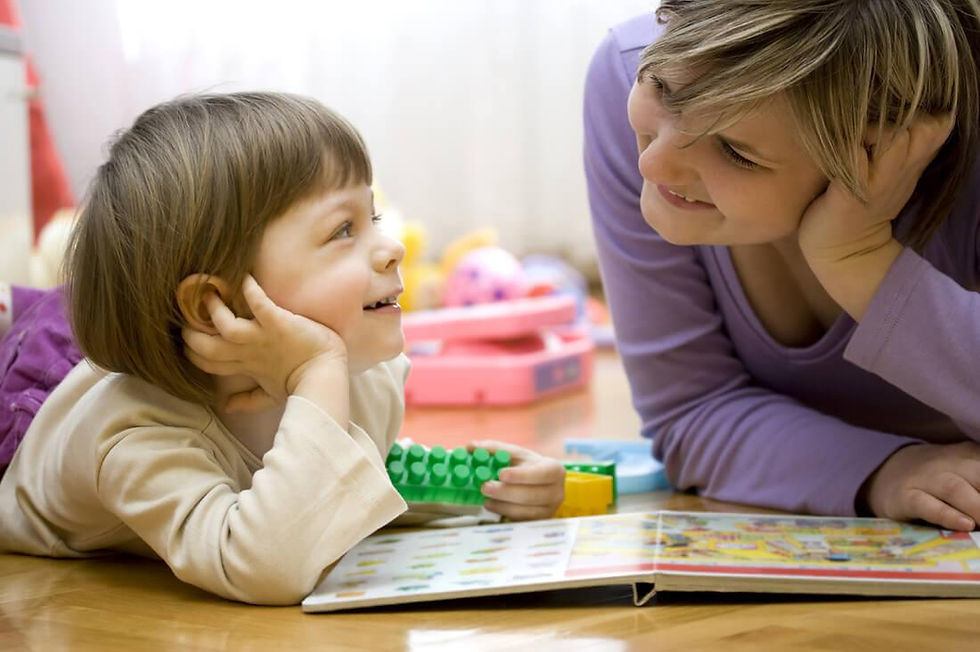How to know if your current therapist is good for your child with autism?
- HEALIS AUTISM CENTRE
- Oct 22, 2019
- 3 min read

One common concern of parents or caregivers who are considering or have taken up therapy for their children will be “Is this therapist good for my child?”. This article will share some objective signs of a good therapist that perhaps you can look out for to help you better understand if you are considering therapy for your child or if the therapist you are working with is suitable for your child.
A good therapist will be able to make a huge impact and improvement in a client’s life. He or she has the ability to guide children with autism to build better relationships, reduce their behavioural issues and enable them to pick up or improve their skills.
Rapport building skills
Building rapport between the therapist and the child is most essential for an Applied Behaviour Analysis – Verbal Behaviour (ABA-VB) therapist. We refer to this process as pairing where the child associates delivery of positive reinforcement with the therapist. By having pairing, trust and rapport are built and this creates a positive learning environment for the child. The child will be motivated during the therapy sessions, encouraging them to follow through to develop and learn new skills.
A good therapist possesses a set of interpersonal skills to establish rapport and build strong relationships with clients. Below are some qualities that will enable him or her to build good rapport with your child.
1. Observation and listening skills
A good therapist constantly observes and actively listens to the child. By focusing solely on the child, listening and reflecting their thoughts back to them, the child will feel respected and accepted. This helps build a foundation of trust and mutual regard between the therapist and the child which is essential to the effectiveness of the therapy.
One reason why being observant and attentive is an especially important quality is because most clients are either non-verbal or are unable to express themselves. For example, one client giggles when he is stressed doing a challenging task. A good therapist is able to observe and understand the child’s unique mannerisms. This helps them to learn how to better support the clients. As such, the therapist is able to modify the tasks to suit the child’s level, communicate with the parents to help them understand better, and also teach the child to express himself appropriately instead of giggling.
2. Flexibility
Every child is different, they do not necessarily have the same needs or exhibit the same behaviours for the same reasons. There is no one-size-fits-all approach that works for every child.
A good therapist is flexible in adapting the sessions according to the needs of the clients. For example, a therapist has 2 clients that exhibit crying behaviour when they are asked to sit down and do work. However, the reasons for their behaviour may be different. One of them may be crying to escape from the table task while the other child may be crying due to the feeling of discomfort from his diapers.
By understanding the clients’ needs, the therapist is able to better respond and adapt accordingly. As such, flexibility is one of the most important attributes to building rapport with the clients and is essential to being a good therapist.
3. Positive attitude toward learning
A good therapist has an open mind regarding various approaches, strategies and methods. He or she responds appropriately to constructive criticism and suggestions for improvement. They would want to know how to perform their job better. For example, a therapist attends regular training sessions with other therapists to share ideas and knowledge and to constantly upgrade herself.
4. Communicates effectively with Parents and Caregivers
A good therapist does not only build rapport with the child, but also involves and interacts with the parents and caregivers. Additionally, the therapist will update parents and caregivers on any changes in routines or the environment that may trigger or affect the child’s behaviour and well-being.
By encouraging them and sharing information and strategies with them, the therapists can assist parents in managing behaviours and building a closer relationship with their child.
In conclusion, having good observation and listening skills, being flexible, showing a positive attitude toward learning, and communicating effectively with parents and caregivers are important criteria for therapists so that they can better understand and support their clients and their varying needs. When these qualities are put together, they become indicators of a good therapist who has the passion to want to help your children improve and be a better version of themselves.
Written by Winnie
Comments